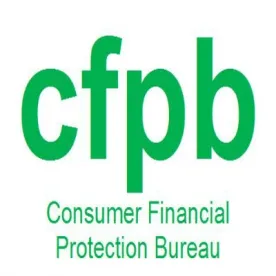Recently, the Consumer Financial Protection Bureau (CFPB) issued a compliance aid that addresses frequently asked questions related to the Coronavirus Aid, Relief, and Economic Security Act (the “CARES Act”) and the COVID-19 pandemic. The compliance aid provides further interpretation of a policy statement the CFPB issued in April and is intended to assist creditors in understanding their reporting obligations in the current environment.
As a practical matter, a compliance aid is not a “rule” under the Administrative Procedures Act and, therefore, covered entities are not affirmatively required to comply with its guidance. Rather, it simply presents the requirements of existing statutes and regulations in a manner intended to be useful for compliance professionals. The CFPB encourages adherence by indicating that it does not intend to sanction or ask a court to sanction entities that reasonably rely on its compliance aids.
The CFPB’s April Policy Statement
In April, the CFPB issued a Statement on Supervisory and Enforcement Practices Regarding the Fair Credit Reporting Act (FCRA) and Regulation V in Light of the CARES Act (the “April Policy Statement”). In the April Policy Statement, the CFPB acknowledged the critical importance of consumer reporting information to consumers and industry, and affirmed that “the continued operation of the consumer reporting system [would] play a critical role in the functioning of the consumer financial services market ….” The CFPB further acknowledged that the pandemic posed operational challenges that impeded the ability of covered entities to comply with statutory and regulatory obligations. The CFPB clarified that it would take a flexible approach to matters of regulation, dispute handling, and the furnishing of consumer information during this difficult time.
Further Guidance under the CFPB’s June Compliance Aid
In the compliance aid it published on June 16, 2020, the CFPB reiterated its commitment to protecting consumers—particularly during the pandemic—and further noted that it is evaluating specific risks to consumers that stem from the pandemic. The recent compliance aid further clarified the CFPB’s April Policy Statement and provided additional considerations for creditors who report consumer credit information.
Limits to the CFPB’s Regulatory Flexibility
Despite this recent guidance and broader industry trends during this time of crisis, the CFPB’s regulatory flexibility will not be without its limits. While the CFPB reiterated in the June 2020 compliance aid its commitment to consider good faith efforts to comply with statutory and regulatory obligations, it also declared that it would “not hesitate to take public enforcement action when appropriate against companies or individuals that violate the FCRA or any other law under its jurisdiction.”
Moreover, the CFPB has not granted an open-ended extension of investigation periods during this time. Despite the pandemic, creditors should ensure they continue to make every effort to conduct reasonable investigations of disputes in a timely fashion. The CFPB clarified in its June 2020 compliance aid that “the [April Policy] Statement did not say that the [CFPB] would give furnishers ... an unlimited time beyond the statutory deadlines to investigate disputes before the [CFPB] would take supervisory or enforcement action,” and provided instead that furnishers “remain responsible for conducting reasonable investigations of consumer disputes in a timely fashion.” Recognizing that furnishers vary greatly in size and sophistication, the CFPB noted there would not be a one-size-fits-all approach and stated instead that it “believes it is appropriate to evaluate individually the efforts and circumstances of each furnisher and consumer reporting agency in determining if it made good faith efforts to investigate disputes as quickly as possible.”
Specific Guidance on Reporting of Consumer Information
The CFPB provided additional guidance on the reporting of consumer information to consumer reporting agencies. As always, creditors should continue to take special care to ensure consumer information is properly reported. While furnishers may grant accommodations (either voluntarily or pursuant to a statutory or regulatory requirement), the CARES Act imposes specific requirements on how furnishers must report accounts to consumer reporting agencies subject to an accommodation where both: (1) “a furnisher makes an accommodation with respect to one or more payments on a credit obligation or account of a consumer;” and (2) “the consumer makes the payments or is not required to make one or more payments pursuant to the accommodation.”
For reporting purposes, if the credit obligation or account was:
- Current before the accommodation, then during the accommodation, the furnisher must continue to report the credit obligation or account as current;
- Delinquent before the accommodation, then during the accommodation, the furnisher cannot advance the delinquent status;
- Charged off, then the CARES Act provisions do not apply to such obligations or accounts.
- Not placed in forbearance, then the furnisher should not report that a consumer’s obligations or accounts are in forbearance, as so doing may lead to inaccurate reporting and/or consumer confusion.
Importantly, the CFPB clarified in its compliance aid that using a Metro 2 “special comment code” that indicates that the consumer is impacted by a disaster or is in forbearance is not a sufficient substitute for adherence to the aforementioned reporting guidelines. In other words, it is not appropriate for furnishers to report their entire portfolios to the consumer reporting agencies using the Metro 2 natural disaster code.
Finally, the CFPB provided the following guidance with respect to reporting the status of an account to the consumer reporting agencies after a CARES Act accommodation period ends: “Assuming payments were not required or the consumer met any payment requirements of the accommodation, a furnisher cannot report a consumer that was reported as current pursuant to the CARES Act as delinquent based on the time period covered by the accommodation after the accommodation ends. A furnisher also cannot advance the delinquency of a consumer that was maintained pursuant to the CARES Act based on the time period covered by the accommodation after the accommodation ends.” In other words, a creditor cannot apply the lack of payments during an accommodation period, or the term of that period, in reporting an account as delinquent.
CFPB Enforcement Actions and Civil Litigation Continue
Even during this period of uncertainty, the CFPB has remained active in bringing enforcement actions against financial institutions, retail mortgage creditors, mortgage brokers, and other businesses. For example, the CFPB has posted to its website summaries of six enforcement actions in the month of July alone. While none of these actions concern FCRA violations, they demonstrate that the CFPB remains active and vigilant during the coronavirus era.
Moreover, the coronavirus pandemic has brought with it a surge in civil lawsuits against creditors and consumer reporting agencies under the Fair Credit Reporting Act and parallel state laws. For example, a group of plaintiffs (on behalf of themselves and a class of consumers similarly situated) recently sued Equifax, TransUnion, and VantageScore, alleging that they had inaccurately reported information regarding mortgages that were suspended under the CARES Act. See Grauman v. Equifax, et al., No. 2:20-cv-03152 (E.D.N.Y. July 15, 2020).
Plaintiffs’ attorneys continue to seek opportunities to bring these lawsuits, and are often better positioned than the CFPB to assert claims on behalf of their clients. In bringing these claims, plaintiffs’ attorneys are not constrained by the CFPB’s enforcement-related guidance, and often seek to capitalize on even the most minor of technical violations without taking current circumstances into account.
As we previously wrote in an article on business challenges presented by the coronavirus pandemic, financial institutions, consumer reporting agencies, and other entities operating in the consumer finance space should take extra precautions to ensure the privacy of consumer data accessed by employees off-site. While many businesses have protocols in place for remote access on a short-term basis, extended work from home and related social distancing measures mean that officers and employees of these institutions will need stable, longer-term solutions to avoid privacy-related issues. The same is equally true of technical violations related to reinvestigation timelines, the availability of legally mandated consumer disclosures in a virtual environment, and the accurate reporting of consumer information, among other statutory requirements.





 />i
/>i
